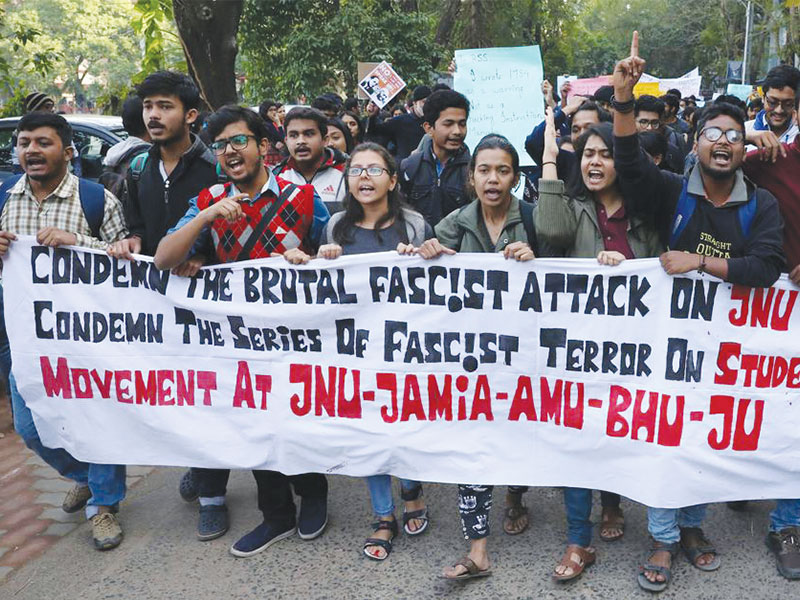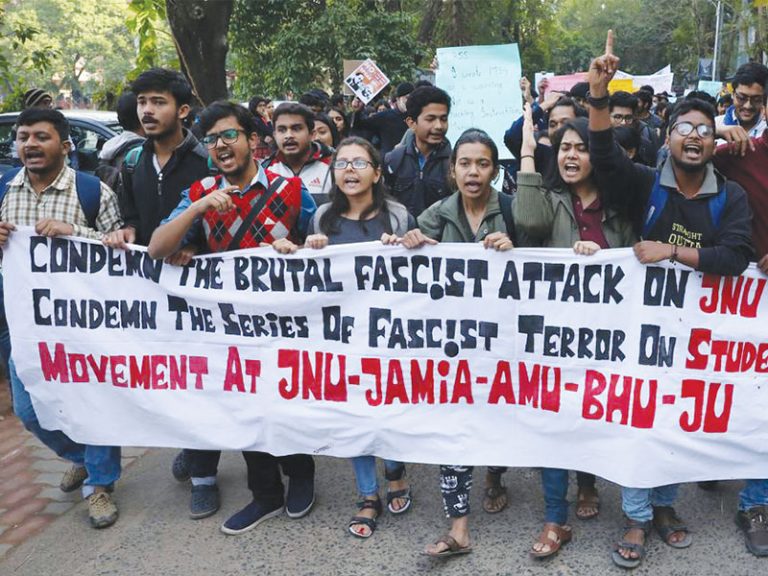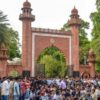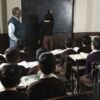West Bengal: Resonant chord
 Inevitably, the gathering storm of countrywide protests against the BJP/NDA government legislated Citizenship Amendment Act, 2019 (CAA) and the proposed National Register of Citizens (NRC) has struck a resonant chord in college and university campuses in West Bengal — especially in Kolkata — which has a long tradition of students politics and activism. Students of the state’s premier universities including Jadavpur, Presidency, Calcutta and IIT-Kharagpur have strongly condemned brutal attacks by the police on students of Jamia Millia Islamia and Aligarh Muslim universities on December 15, and Jawaharlal Nehru University (JNU) on January 5 while they were protesting CAA.
Inevitably, the gathering storm of countrywide protests against the BJP/NDA government legislated Citizenship Amendment Act, 2019 (CAA) and the proposed National Register of Citizens (NRC) has struck a resonant chord in college and university campuses in West Bengal — especially in Kolkata — which has a long tradition of students politics and activism. Students of the state’s premier universities including Jadavpur, Presidency, Calcutta and IIT-Kharagpur have strongly condemned brutal attacks by the police on students of Jamia Millia Islamia and Aligarh Muslim universities on December 15, and Jawaharlal Nehru University (JNU) on January 5 while they were protesting CAA.
On January 7, four rallies were staged in Jadavpur University, three by students and one by faculty to protest police brutality against members of the JNU Students’ Union (JNUSU). “We are in complete solidarity with JNUSU. Every attempt by the fascist BJP/NDA government to destroy mass students’ movements will result in equal resistance by us,” warns Debraj Debnath, general secretary of the CPM-affiliated Students Federation of India. In Presidency University a massive students’ protest was called on Founders’ Day (January 20), with chief guest Bibhas Chakraborty, a veteran theatre personality and alum, demanding a referendum on CAA.
The same day, students of the West Bengal National University of Juridical Sciences (WBNUJS, estb.1999) revoked their invitation to West Bengal’s governor Jagdeep Dhankhar who had been invited as chief guest at the closing ceremony of the International Model United Nations (IMUN) programme scheduled for January 10, as the students felt that the governor’s stand on the CAA is “inconsistent with the views and ideals of the NUJS IMUN Society and the NUJS general body at large”.
However, statewide protests against CAA which fast-tracks citizenship of Hindu, Sikh, Buddhist and Christian persecuted minorities of Pakistan, Bangladesh and Afghanistan but specifically excludes religiously persecuted Muslim minority sects (Shia, Ahmediya, Bahai etc), reached a crescendo on January 11 when prime minister Narendra Modi flew into Kolkata to visit the Ramakrishna Mission at Belur on the outskirts of Kolkata. All efforts of the Kolkata police to barricade Modi’s route from the airport to the city failed and the PM had to take a helicopter and a boat ride down the Hooghly to reach his destination.
Although students protests against the CAA/NRC in Kolkata have been strident and successful, most monitors of West Bengal’s academic scene concede that chief minister Mamata Banerjee who is vehemently opposed to the CAA/NRC and the BJP — not necessarily in that order — has provided overt and covert support to the protests.
With Bengal’s legislative assembly election scheduled for the summer of 2021, Banerjee whose Trinamool Congress party famously routed the CPM (Communist Party of India-Marxist)-led Left Front government which misruled West Bengal uninterruptedly for 34 years (1977-2011) in 2011, and again in 2016, is fighting a do-or-die electoral battle against a resurgent BJP. In General Election 2019, the BJP which won a mere two of Bengal’s 42 seats in the Lok Sabha, Delhi in 2014, upped its ante to 18 seats while TMC representation in Parliament dropped from 34 to 22.
Banerjee and the TMC leadership believe that the crystallising new solidarity between the leftist students unions and TMC in their opposition to CAA/NRC and its authors will work to TMC’s electoral advantage. With students across the country making common cause to oppose CAA/NRC, incremental CPM-TMC cooperation led by Bengal’s voluble and well-entrenched leftist students unions could take the wind out of BJP sails.
Baishali Mukherjee (Kolkata)
















Add comment